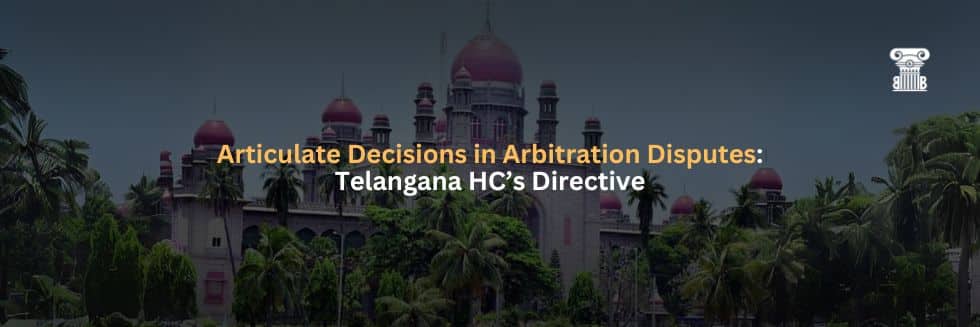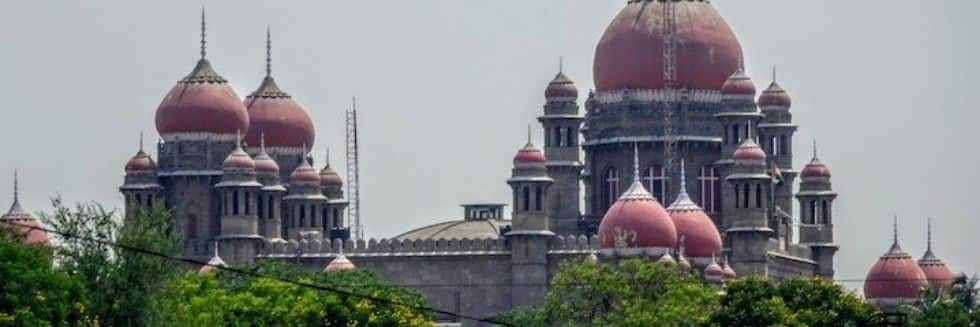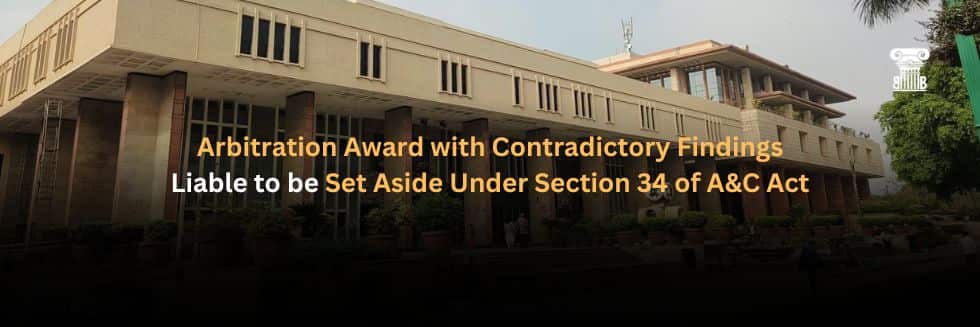In the case of Pbsamp Projects Pvt Ltd v. HLV Limited, the Telangana High Court emphasized the importance of clarity and thoroughness in judicial orders especially in complex matters like arbitration disputes. The Court overturned the decision of the executing court due to deficiencies in reasoning and explanation reaffirming the principle that judicial decisions must be well-reasoned for fairness and justice.
The Court’s reference to relevant provisions of the Arbitration Act and precedent-setting Supreme Court judgments demonstrated meticulous legal analysis. By remitting the matter to the Executing Court for reconsideration, the High Court underscored the significance of procedural fairness and adherence to legal principles ensuring justice for all parties involved.
CASE DETAILS:
Pbsamp Projects Pvt Ltd v. HLV Limited
Civil Revision Petition No.60 of 2024
Telangana High Court
Coram: Chief Justice Alok Aradhe and Justice Anil Kumar Jukanti
BACKGROUND:
- In response to the Petitioner’s argument, the Respondent contended that the executing Court’s interpretation was accurate as the term “sum” in Section 31(7) of the Arbitration Act does not encompass “interest.”
- Additionally, the Respondent asserted that the amount already paid by them totalling Rs. 44,42,05,254.00 completely satisfied the award thereby dismissing the need for further payment of compound interest.
- The Telangana High Court upon reviewing the arguments presented by both parties will likely consider the language and intent of Section 31(7) of the Arbitration Act to determine whether the term “sum” encompasses interest.
- Additionally, the Court may assess whether the executing Court accurately calculated the amount due under the final award.
- The outcome of the petition under Article 227 of the Constitution will hinge on the Court’s interpretation of relevant legal provisions and its determination of whether the executing Court’s decision was erroneous.
- If the High Court finds merit in the Petitioner’s arguments and concludes that the executing Court misinterpreted the law or made errors in calculation, it may overturn the lower court’s decision and grant relief to the Petitioner.
- Conversely, if the High Court upholds the executing Court’s decision, the Petitioner’s application for enforcement of the arbitral award with compound interest may be dismissed.
OBSERVATIONS:
The High Court’s decision underscores the critical importance of clarity and thoroughness in judicial orders especially in matters involving complex legal interpretations and calculations. By setting aside the executing Court’s order due to deficiencies in reasoning and explanation, the High Court reaffirmed the principle that judicial decisions must be well-reasoned and articulate to ensure fairness and justice.
Furthermore, the High Court’s reference to relevant provisions of the Arbitration Act and precedent-setting Supreme Court judgments demonstrates the meticulous legal analysis undertaken in resolving the dispute. The court’s reliance on the interpretation of Section 31(7)(b) of the Arbitration Act as elucidated by the Supreme Court in previous cases provides valuable guidance for interpreting similar legal provisions in future disputes.
Overall, the High Court’s decision to remit the matter to the Executing Court for reconsideration underscores the importance of procedural fairness and adherence to legal principles in resolving disputes ultimately ensuring justice for all parties involved.
JUDGEMENT:
The division bench of Chief Justice Alok Aradhe and Justice Anil Kumar Jukanti of the Telangana High Court overturned a decision made by the executing court criticizing it for being vague and lacking in explanation or reasoning. They emphasized that given the nature of the dispute concerning the calculation of the amount owed under the arbitral award, the executing court should have issued a thorough and reasoned decision.






